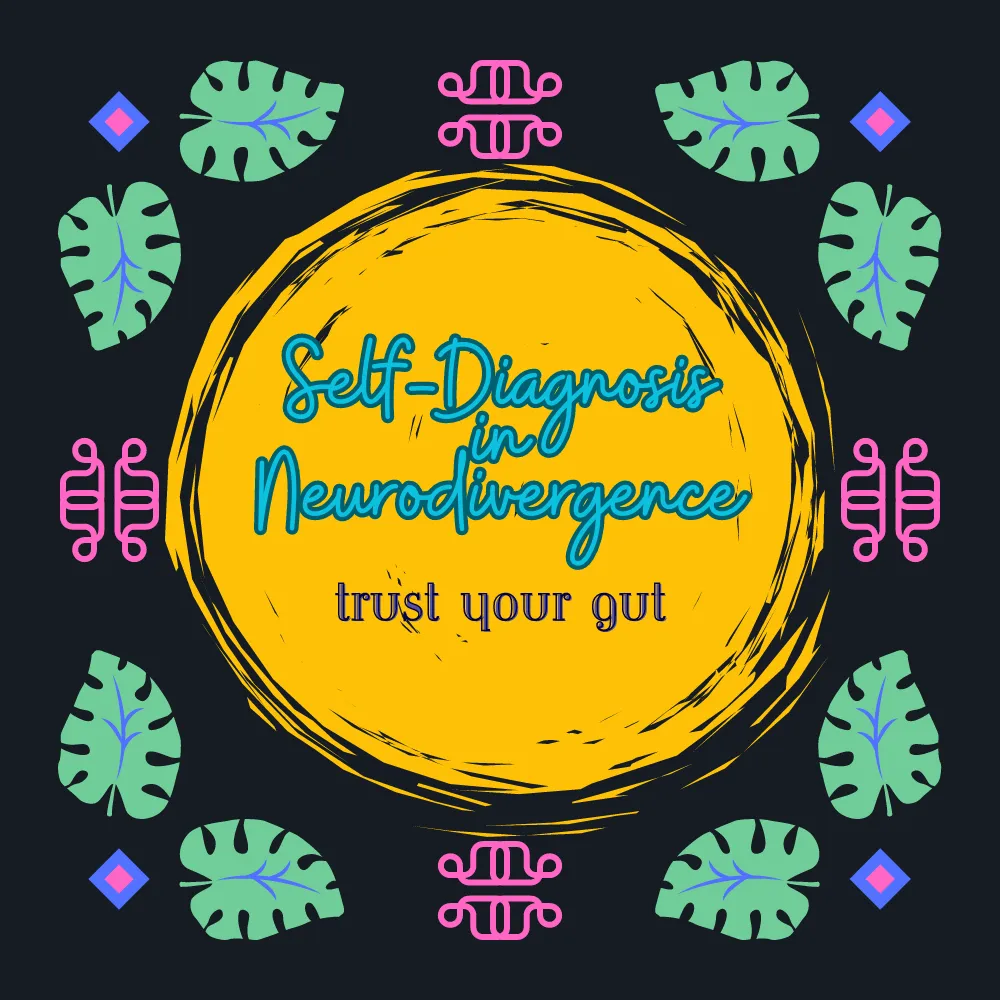
Self-Diagnosis in Neurodivergence: Trusting Your Gut
In the journey of understanding one's neurodivergence, self-diagnosis can be a profound and empowering step. While traditional medical and psychological systems often emphasize the importance of formal diagnoses, it's essential to recognize the value of self-diagnosis, especially in the neurodivergent community. This approach honors the deep self-awareness individuals have about their own experiences and challenges.
The Power of Self-Diagnosis
Self-diagnosis allows individuals to take control of their own narratives and understanding of their neurodivergence. Many people turn to self-diagnosis after extensive research and reflection, often after years of feeling "different" without a clear explanation. This process can be validating and liberating, providing a sense of identity and community.
Personal Insight and Understanding
Self-diagnosis is rooted in a person's intimate knowledge of their own thoughts, behaviors, and experiences. No one understands your inner world better than you do. Research supports that individuals who self-identify as neurodivergent often exhibit a high degree of accuracy in recognizing their own traits and challenges (Kapp et al., 2013).
Accessibility and Inclusivity
Access to formal diagnosis can be limited by various barriers, including financial constraints, geographical location, and the availability of knowledgeable professionals. Self-diagnosis offers an inclusive alternative, making it possible for more people to understand and accept their neurodivergence without these obstacles.
Avoiding Potential Harms
The formal diagnostic process can sometimes feel invalidating or even traumatic. Many neurodivergent individuals report feeling gaslighted or misunderstood during clinical assessments. This can lead to further marginalization and distress. Self-diagnosis bypasses these negative experiences, allowing individuals to affirm their identity on their own terms (Lewis, 2016).
Challenges and Considerations
While self-diagnosis is a valid and empowering process, it's important to approach it thoughtfully:
Research and Education
Self-diagnosis should be informed by thorough research. There are numerous resources available, from books and articles to online communities, that provide comprehensive information about various forms of neurodivergence. Engaging with these resources can help ensure a well-rounded understanding.
Community Support
Connecting with others who share similar experiences can be incredibly validating and supportive. Online forums, social media groups, and local meetups offer spaces where neurodivergent individuals can share their journeys, provide mutual support, and gain insights from one another.
Professional Guidance
While self-diagnosis is a valid approach, some may still benefit from seeking professional guidance to complement their self-assessment. Finding a neurodivergent-affirming therapist or coach can provide additional support and validation without the pressures of a formal diagnostic process.
Conclusion
Embracing self-diagnosis is about trusting your inner wisdom and recognizing the validity of your lived experiences. It's a step towards self-acceptance and empowerment, offering a pathway to understanding oneself in a world that often prioritizes formal labels and assessments. At FlowArt, we honor and support the journey of self-diagnosis, providing resources and community for those navigating this path. Remember, your understanding of yourself is powerful and valid.
For those seeking more information and support, consider exploring works such as "NeuroTribes" by Steve Silberman and resources from the Autistic Self Advocacy Network (ASAN). These can offer valuable insights and validation as you continue your journey.
References:
Kapp, S. K., Gillespie-Lynch, K., Sherman, L. E., & Hutman, T. (2013). Deficit, difference, or both? Autism and neurodiversity. Developmental Psychology, 49(1), 59-71.
Lewis, L. F. (2016). Exploring the experience of self-diagnosis of autism spectrum disorder in adults. Archives of Psychiatric Nursing, 30(5), 575-580.
